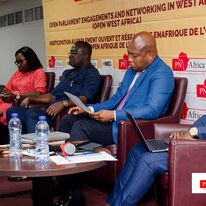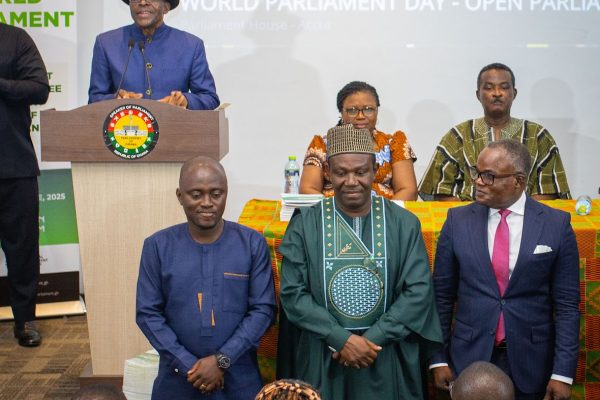In 2023, the Parliamentary Network Africa (PNAfrica), a Civil Society Organization championing Open Parliament in Africa, embarked on several projects to strengthen civil society capacity and networking for the advancement of civic participation, parliamentary transparency and accountability across national and regional legislatures.
These activities were necessitated following some recommendations made in its maiden edition of the Open Parliament Index Report for Africa in 2022 and the need to take corrective actions to promote greater openness in the various parliaments.
The Open Parliament Index is a PNAfrica initiative that ranks national Parliaments on the dimensions of openness once every two years. The first edition focuses mainly on West Africa countries
With funding from the National Endowment for Democracy (NED), PNAfrica embarked on various project activities such as supporting and mentoring national Parliamentary Monitoring Organisation (PMO) networks across West Africa.
PNAfrica, in collaboration with its country offices in Sierra Leone, and Gambia worked closely with a seasoned consultant to design a comprehensive legislative compendium focusing on the events and dynamics of the 5th Parliament of Sierra Leone. The compendium aims to document the successes, challenges, and transformative moments of the country’s 5th parliament.
PNAfrica’s initiative to create a legislative compendium aligns with global benchmarks for progressive Parliaments, emphasizing the organization’s commitment to fostering transparency, knowledge-sharing, and historical documentation within the parliamentary landscape of Sierra Leone.
Another milestone achieved through this support activity was recognizing the crucial role of accurate reporting in promoting transparency and civic engagement within parliamentary proceedings, this activity was undertaken through a collaborative effort with the parliamentary staff of The Gambia’s National Assembly, to establish the Parliamentary Reporters Association (PRAG), a platform for enhancing transparency, fostering accurate reporting, and encouraging robust parliamentary engagement.
This was achieved through the process of mobilizing journalists with a keen interest in parliamentary reporting in The Gambia. The mobilization involved outreach to various media organizations, both online and offline, to identify journalists dedicated to covering parliamentary activities. The goal was to form a cohesive group of reporters committed to elevating the standards of parliamentary journalism in the country.
Other support rendered was workshops organized by the Parliamentary Monitoring Organization (PMO) Network in Côte d’Ivoire to build the capacity of network members on the Open Parliament concept taking into consideration their local context.
This workshop also sought to formalize their network and interact with members of the national assembly on mechanisms put in place to promote Open Parliaments. And how the Côte d’Ivoire network could be managed and structured taking inspiration from the African Parliamentary Monitoring Organization’s (APMON) Regulatory framework.
Further to this, other workshops were held for the Lusophony countries namely Cape Verde and Guinea-Bissau, and also for Senegal respectively. They saw the need for networking among their peers in West Africa for experience sharing and collaborative dialogue and began the processes of institutionalizing the network respectively.
The workshops and the creation of these networks aim to strengthen parliamentary openness across national and regional legislatures in West Africa through a legislative transparency tool and to facilitate networking among parliamentary monitoring and engagement organizations (PEMOs) in West Africa for experience sharing and collaborative dialogue.
Participants of the workshops were also taken through the performance of their respective countries in the maiden edition of the Africa OPI and there was a call on the need for CSOs to work with parliament to co-create action plans to promote Parliamentary openness.
The capacity of other PMO Network Partners was also strengthened through virtual workshops to effectively structure and manage the country networks established. In addition, technical support was provided for networks on how to engage parliament to co-create action plans.
By Florence Gbolu





